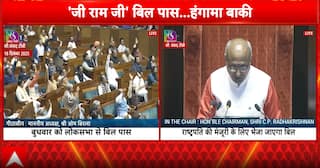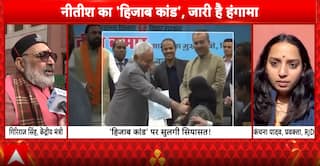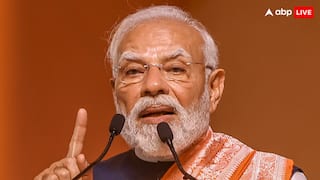Why GST On RMG Is Like Charging Mario Extra For Every Coin, Or Smokers For Each Puff

The GST Council’s decision to levy 28% Goods and Services Tax (GST) on “full face value” in a ‘skill-based online RMG’ activity overlooks the fact that online real money gaming (RMG) is not merely a hobby but an activity that involves skill, time, effort and money, and has potential benefits beyond mere entertainment. It ignores the psychological, cognitive science and neuroscience aspects, or shall we say the “gamer’s perspective”. Online real money gamers are driven by their instincts to invest time, effort, and money to engage in a game to get entertained (dopamine ride) and also to potentially gain by way of immediate winnings (extra dose of dopamine). The “tax thrill” by way of the GST decision added in uneven measure would surely spoil and ruin the taste of the intended cuisine.
The element of skill, judgement and decision-making employed during these activities plays a crucial role in the pursuit of both entertainment and potential winnings. There are several other benefits of online gaming which involve / include benefits of social interaction, skill acquisition, learnings, acquire leadership skills and teamwork, promote creativity by coming up with new game designs and overall enhanced user experience. A devoted real money gamer acquires the skill sets to succeed in a gaming activity by:
- devoting time
- gaining gaming experience
- learning to improve and enhance his/her attention skills, by striking the right balance with the aspects i.e., divided/selective attention.
- Ability to maintain sustained attention.
- Rapid shift between different stimuli.
- Ability to engage and succeed in complex problem solving.
- Strategic thinking and decision making.
The taxation dilemma would not only dampen the spirits of real money gamers but would also hamper the growth and progress of the entire gaming ecosystem. The potential for personal and professional development or to attend tournaments / training programmes within the gaming community is stifled leaving both gamers and the industry at a disadvantage. When the allure of lucrative winnings/meaningful rewards is stripped away the intrinsic motivation and instinct that drives gamers to participate in any real money gaming activity will be lost. The cash gamer or the dollar warrior battling with taxes would now find the whole exercise to be a complete waste of time, money and effort. It's like charging Mario for every coin he collects.
Taxing RMG At 28% Is Not The Concern But Taxing The Whole Face Value Is
It seems that RMG Industry is given the treatment of “sin taxes”, but at what cost and is it right? It’s comparable to buying a ticket for a rollercoaster ride only to find out and realise that you are being charged extra for every loop. The smoker is being taxed extra for lighting up each cigarette and for the number of puffs taken. The GST decision is as good as a prohibition and would now benefit the offshore gambling sites and create underground economies. Taxing them at 28% is not the concern but taxing the whole face value is. It has elements of double taxation, taxing unrealised winnings or even taxing the loss incurred by gamers.
There is another angle to this whole fiasco. The GST imposition happens to tax a set of unintended assesses who are neither able to get any Input Tax Credit (ITC), nor are they falling into the threshold value of Rs 20 lakh to register or file returns. There could hardly be any gamers who would be making winnings to the tune of Rs 20 lakh.
Also, GST is generally a tax, which is absorbed by the industry like the FMCG companies absorb GST in their pricing, these include products such as packaged foods, toiletries, beverages, personal care, and even mobile phones like it happened in the case of Xiaomi (way back when GST was introduced) who decided to absorb the GST impact as against others who had passed it on to the end consumer. Similarly, the pharmaceutical sector or the service industry like educational institutions, schools, colleges, coaching centres as well as health care service providers generally provide services by absorbing the GST. Another example is that of real estate where GST is imposed for under-construction properties but complete projects are exempted. Developers of under construction properties usually absorb GST in the prices of under construction properties. One more example could be that of transportation and logistics like bus, airline and rail tickets.
Most of the RMG companies were absorbing GST within their platform fee collected and were extending maximum benefits of winnings to the gamers. They would be left with no option now but to pass it on to the gamers. The decision to be made by the RMG business is only with respect to the quantum. Thus, it is the gamer who would have to ultimately bear the heavy taxation i.e. 28% taxation as GST and 30% as the income tax, which gets deducted at the source and still be left with the motivation to participate or develop any skill, judgement and decision making as well and also to take the risk of losing money or win just to pay taxes.
So, to get it straight, the gamers would obviously drop their controllers and vanish as there is no motivation left to compete, excel, and outperform in a skill-based gaming industry. Similarly, it is really difficult for any online Real gaming company to meet costs by taking a 50% hit on its previous earnings. Needless to mention that there would be obvious consequences to the collections to the government exchequer as well.
GST Move Comparable To AGR Dispute That Took Two Decades To Resolve
The GST decision somehow is also comparable to the AGR dispute, which was fiercely fought over two decades by the government, finally to boil down to a situation when the Department of Telecom recently clarified that the licence fee would be payable on ‘core activities’ alone and ‘non-core activities’ like insurance claim, capital gains on mergers, revenue earned from MIB licences, dividend income, mutual fund gains, foreign exchange fluctuations, credit provided by OpEx-CapEx vendors, interest on direct-indirect tax or refunds made, would not be included. Indeed, in a triopoly it has been highly accommodative by giving deferments, extensions to companies to defer the payments and grant extensions and permitting them to arrange funds.
Another consequence, which should not be lost sight of, is the great gamer migration. We would now see a caravan of real money gamers crossing borders to jurisdictions that would offer them reduced or nil burden of taxation on their winnings. It will not only cause a loss of revenue to the government but will also be a case of brain drain, dealing a big blow to digital progress. All the investors who have risked their investments in this sector have already started losing confidence and worst of all they are being subjected to dealing with uncertain times until the government takes a final decision..
To add to their woes is the ghost of taxation past, threatening to haunt their revenue with retrospective charges. It’s a double whammy being stuck in a video game where every turn you take is met with a Boss Battle with no BFG9000 to blast away the problems. There is a big risk and uncertainty of the GST decision being made retrospective. How can these be accounted for or factored in the way business is conducted today.
Ultimately, the government needs to strike a balance between ensuring a fair tax collection and fostering a conducive environment for the growth of the RMG industry. A more nuanced understanding of the industry and its benefits could potentially lead to a more equitable taxation policy. They must take into account the cause and concern of the demography, which would be impacted. It can only be hoped that the government doesn’t take two decades to resolve the GST decision, like the way they did it for the AGR dispute.
(The author is an independent counsel and columnist)
Disclaimer: The opinions, beliefs, and views expressed by the various authors and forum participants on this website are personal and do not reflect the opinions, beliefs, and views of ABP Network Pvt. Ltd.


























